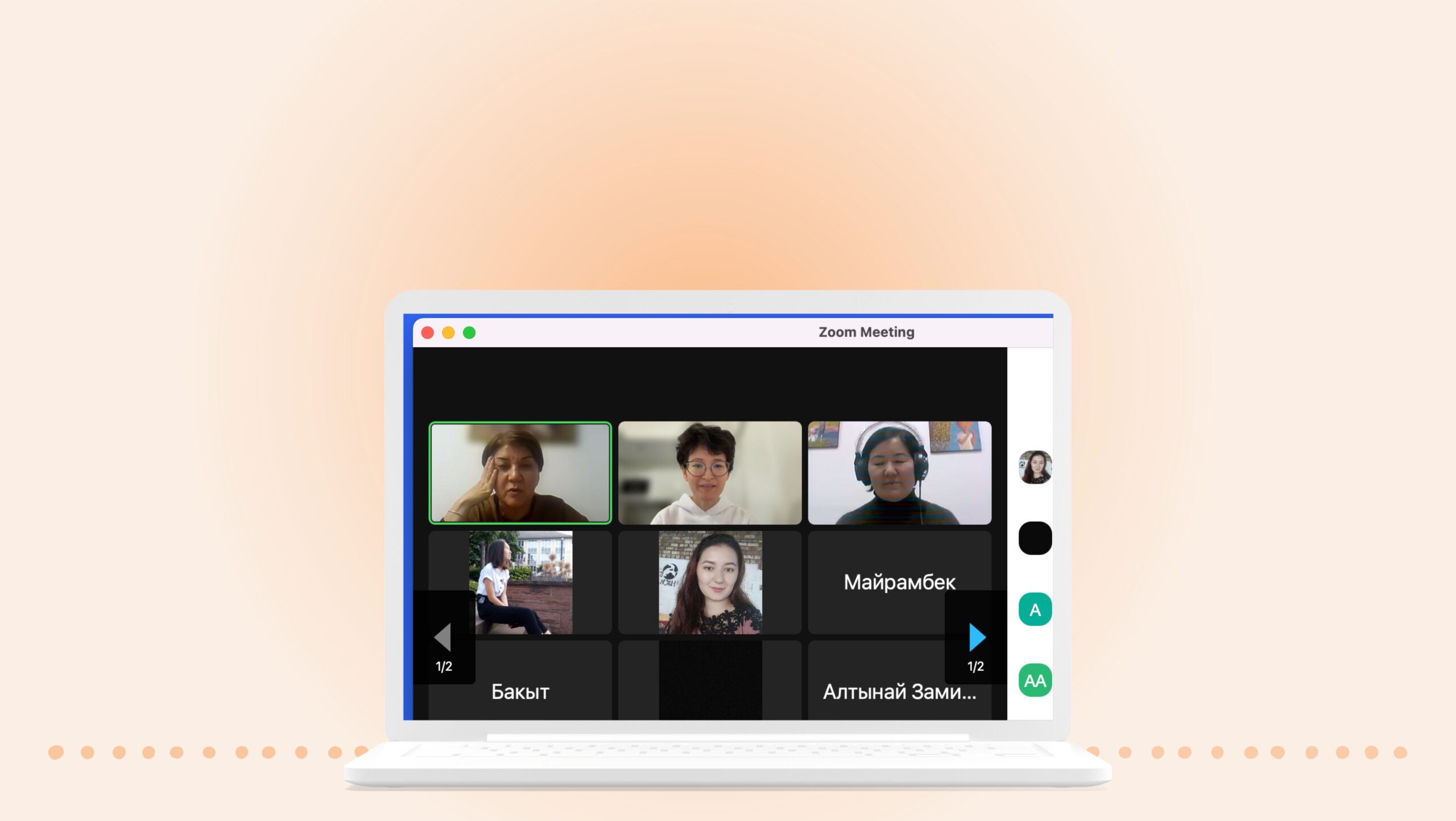Context: One of the key focuses of CAG’s work is enhancing the security, safety, and resilience of civil society organizations and communities in Central Asia amid the complex challenges facing the region. These challenges range from armed border conflicts, inter-ethnic tensions, low human development indexes, limited natural resources, climate change and environmental degradation. Civil society organizations in the region not only operate in the face of these challenges but also take active measures to address them, aiming to protect the rights of local vulnerable communities and the individuals. However, this commitment often comes at a cost to the personal security and well-being of activists. In a context of limited or closed civic space, a lot of civil society representatives are targeted by the state. Importantly, the personal security, well-being, and safety of activists at various levels within civil society organizations are often overlooked. This oversight occurs as organizations and activists prioritize bigger missions, potentially overshadowing the crucial need to ensure the safety and resilience of the individuals at the forefront of defending the rights of vulnerable communities. While CSOs continue to play a crucial role as safeguards and catalysts of democracy, it is evident that they are frequently fragile, underfunded, and at times lack the capacity to comprehensively address recurring security threats. This, in turn, affects the communities they serve.
Recognizing the need to address these challenges, in 2023, one of the main priorities of CAG’s work was the mainstreaming of the Human Security Framework within our partner organizations, along with the strengthening of their well-being routines and practices.
The Human Security Framework encompasses aspects such as economic, food, health, environmental, personal, community, and political security, moving away from the traditional focus on national and military security. Instead, it advocates for a holistic approach that prioritizes the well-being and safety of individual people and communities. This enables a deeper comprehension of local contexts, including the root causes of insecurities, their interconnectedness, and effects on different regions and groups.
As part of this work, CAG organized a series of online workshops for our partner organizations focused on human security at the end of 2023. The workshops were held by Aiza Shaki, a collective care specialist, somatic practitioner, spiritual activist, and movements’ researcher. Talking about her work, Aiza shared, ‘Passionate about philanthropy values, well-being, and healing in collectives, I believe in the power of unity, and I work to create safe spaces for organizational sustainability, resilience, and meaningful co-creation and cooperation’.
The first round of workshops introduced the Human Security Framework to the organizations and delved into the practical application of the framework in both current and future interventions. Learning about the principles of human security, the participants uncovered the intricate web of connections between the various themes within their work. ‘Gender inequality, for instance, is not an isolated issue; it intertwines with a myriad of factors, impacting climate issues, economy, migration, social norms and beliefs. Recognizing this interconnectedness is crucial, as it prompts us to adopt a holistic perspective that considers the broader context of our work and lives,’ Aiza explains.
Acknowledging that the challenges the civil society organizations work with are interwoven with complex societal dynamics, the workshops sought to foster a holistic approach to organizational development, sustainability, and collective resilience. Activists were invited to explore alternative methodologies and techniques that begin with self-awareness and extend to community care.
The second round of workshops focused on the personal and community-related aspect of the human security framework, emphasizing the importance of self-care and community involvement, empowering participants to take responsibility for their well-being.
The participants were encouraged to reflect on how practicing self-care and self-awareness can foster collaborations and co-creation with partners and the communities they work with. Central to the workshops was the goal of familiarizing participants with the well-being aspect of human security through a somatic body-mind centered approach. According to Aiza, ‘This approach encouraged an examination of the interconnectedness between personal and collective issues, providing a holistic foundation for organizational development and sustainability. The invitation was extended to activists to explore methodologies that prioritize self-care and community well-being, envisioning a cooperative model where everyone benefits’.
Participants immersed themselves in emotional introspection and different exercises, resulting in heightened self-awareness and a profound recognition of the interplay between personal well-being and broader societal issues. Through practical exercises, they observed their own emotions, overcoming initial discomfort and acknowledging feelings such as anxiety. This sparked a willingness to embrace change among the participants, holding the potential for a shift towards prioritizing personal care and enhancing their capacity for effective activism.
These workshop sessions marked a pivotal step towards adopting a holistic view of activism, recognizing the inseparability of personal well-being and community welfare. The result was a group of activists more adept at navigating the complexities of activism and societal change, with a balanced focus on both self and community care.
Additionally, in 2023, our local partners in Kyrgyzstan and Uzbekistan conducted workshops for the target groups and communities they work with, including activists, community leaders, local civil society organizations, and decision makers that focused on the well-being, anti-burn out sessions, as well as somatic approaches and ecopsychological models to personal and community resilience. For example, our partner from Uzbekistan organized a series of activities for the local activist communities that focused on well-being and emotional intelligence and engaged participants in a learning journey to better understand and express their emotions and offering valuable insights into personal and interpersonal emotional dynamics.

